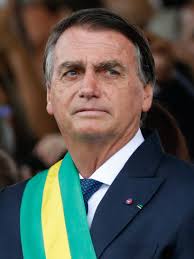Jair Bolsonaro: A Shift in Brazil’s Political Landscape

Introduction
The political scene in Brazil has undergone a dramatic transformation in recent years, largely due to the influence of Jair Bolsonaro. As a former military captain and far-right politician, Bolsonaro’s presidency has been marked by controversial policies and divisive rhetoric. Understanding his impact is crucial for comprehending Brazil’s current political dynamics and the direction it may take in the future.
Bolsonaro’s Presidential Tenure
Jair Bolsonaro was elected President of Brazil in October 2018, following a campaign that focused on law and order, anti-corruption, and economic liberalisation. His administration took office in January 2019 amidst rising concerns over social unrest and a struggling economy. Bolsonaro’s tenure has been characterised by his approach to governance, which often involves bypassing traditional political norms and protocols.
One of the significant aspects of his presidency has been his handling of environmental issues, particularly related to the Amazon rainforest. Bolsonaro’s policies have led to increased deforestation rates, drawing criticism from environmentalists and international powers alike. His stance on science, particularly during the COVID-19 pandemic, has further fuelled controversy, as he frequently downplayed the severity of the virus and opposed lockdown measures.
Political Polarisation
Bolsonaro’s tenure has led to heightened political polarisation within Brazil. His supporters, who admire his tough stances on crime and corruption, are often at odds with a significant portion of the population that opposes his views on human rights, environmental protection, and indigenous rights. The political divide has resulted in protests and widespread discussion about the future of democracy in Brazil.
Recent Developments
As Brazil approaches its next presidential election in 2026, the implications of Bolsonaro’s leadership remain significant. Recent polls indicate that Bolsonaro’s popularity has waned, with many Brazilians expressing dissatisfaction with his economic management and social policies. The emergence of new political alternatives may signal a potential shift in the electorate’s preferences.
Conclusion
Jair Bolsonaro’s influence on Brazil’s political landscape is undeniable, revealing deep societal divisions that may shape the country for years to come. As the nation navigates the path ahead, the legacy of Bolsonaro will serve as a critical reference point for both political candidates and voters alike. Understanding this period is essential not only for Brazilians but for those observing global political trends, as it highlights the challenges and complexities faced by democracies in the contemporary world.








